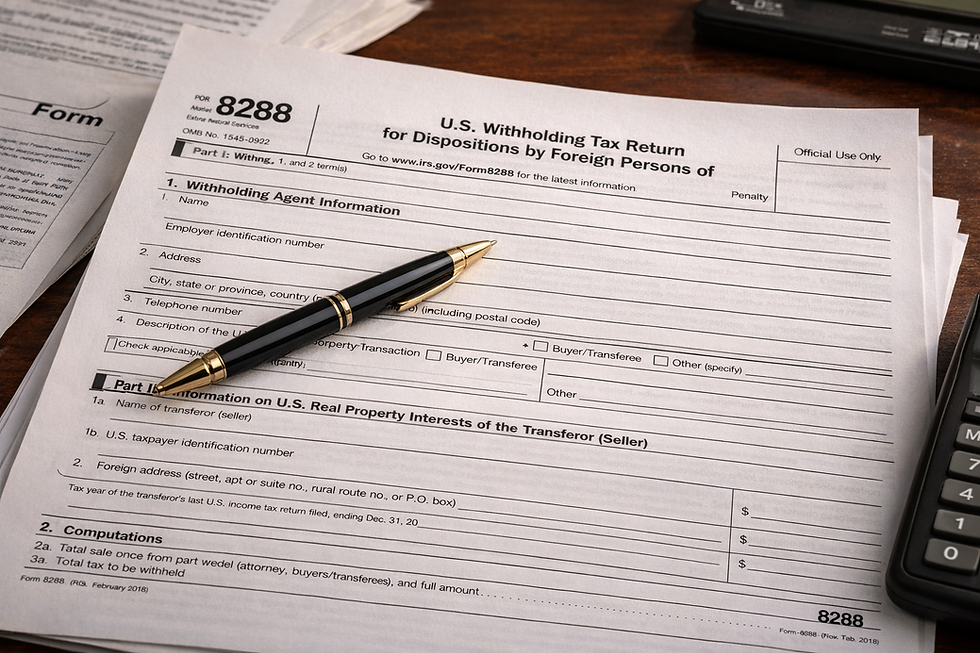Uncontested vs. Contested Divorce in NY: Which is right for you?
- Nov 13, 2025
- 3 min read
Updated: Feb 22
The decision to pursue divorce in New York involves more than filing paperwork. One of the first practical determinations is whether the matter will proceed as uncontested or contested. The distinction affects cost, timing, privacy, and the degree of court involvement in your family and financial affairs.
Understanding the difference at the outset allows you to approach the process with realistic expectations and a clear strategy.
What Is a Contested Divorce?
A divorce is “contested” when the parties do not agree on one or more material issues. These typically include:
Division of marital property and debt
Spousal maintenance
Custody and parenting time
Child support
Valuation and distribution of business or professional interests
When disagreements remain unresolved, the court becomes actively involved. The case may require formal discovery, financial disclosures, motion practice, court conferences, and, in some instances, trial. Experts such as forensic accountants, business valuators, or custody evaluators may be retained. Contested divorces can be lengthy and resource-intensive. They may be necessary where there are significant disputes, concerns about transparency, or fundamental disagreement over parenting or financial terms. In those circumstances, judicial oversight provides a structured mechanism for resolution.
What Is an Uncontested Divorce?
An uncontested divorce exists when both spouses reach agreement on all substantive issues before asking the court to intervene. The terms are reduced to a written settlement agreement, and the court’s role is largely administrative—reviewing and approving the documentation.
Uncontested divorces are often:
More efficient
Less expensive
Less adversarial
More private
Because the issues are resolved by agreement, there is typically no need for litigation, hearings, or trial.
It is important to understand that “uncontested” does not mean informal. Every required issue must be addressed comprehensively and in writing. If even one material issue remains unresolved, the case becomes contested.
Financial Complexity and Strategic Considerations
In matters involving significant assets—closely held businesses, professional practices, investment portfolios, real estate holdings, retirement accounts, or deferred compensation—the analysis becomes more nuanced.
Even where both parties are cooperative, questions may arise concerning:
Proper valuation methodologies
Tax consequences of asset division
Structuring of maintenance payments
Allocation of future income streams
Treatment of restricted equity or partnership interests
In these circumstances, an uncontested divorce may still be appropriate, but only after careful financial review and drafting. Efficiency should not come at the expense of precision. Errors in structuring property transfers, retirement distributions, or business allocations can create long-term consequences. Conversely, a contested proceeding may be necessary where there is disagreement about asset disclosure, valuation disputes, or concerns about fairness. Litigation provides formal mechanisms to compel transparency and protect rights.
How to Begin Thinking About the Decision
The choice between uncontested and contested divorce is not a reflection of personal dynamics. It is a procedural distinction based on whether agreement exists.
You may consider an uncontested divorce if:
Both spouses are willing to negotiate in good faith;
Financial information is transparent;
Parenting arrangements can be resolved cooperatively;
The terms can be finalized in writing without dispute.
A contested divorce may be required if:
There is disagreement over significant financial or parenting issues;
Asset valuation is disputed;
There are concerns regarding incomplete disclosure;
Judicial determination is necessary to reach resolution.
A Practical Perspective
Many divorces begin with the hope of an uncontested resolution but require structured negotiation before that outcome is achieved. Others begin contested but settle before trial. The path can evolve. The central objective is not to select the faster or more economical label. It is to ensure that the final outcome protects your financial stability, parental rights, and long-term interests.
In New York, both contested and uncontested divorces follow established statutory frameworks. The appropriate route depends on your circumstances, the complexity of your assets, and the degree of agreement between you and your spouse. Careful early evaluation often prevents unnecessary escalation while preserving leverage when it is needed.



Comments